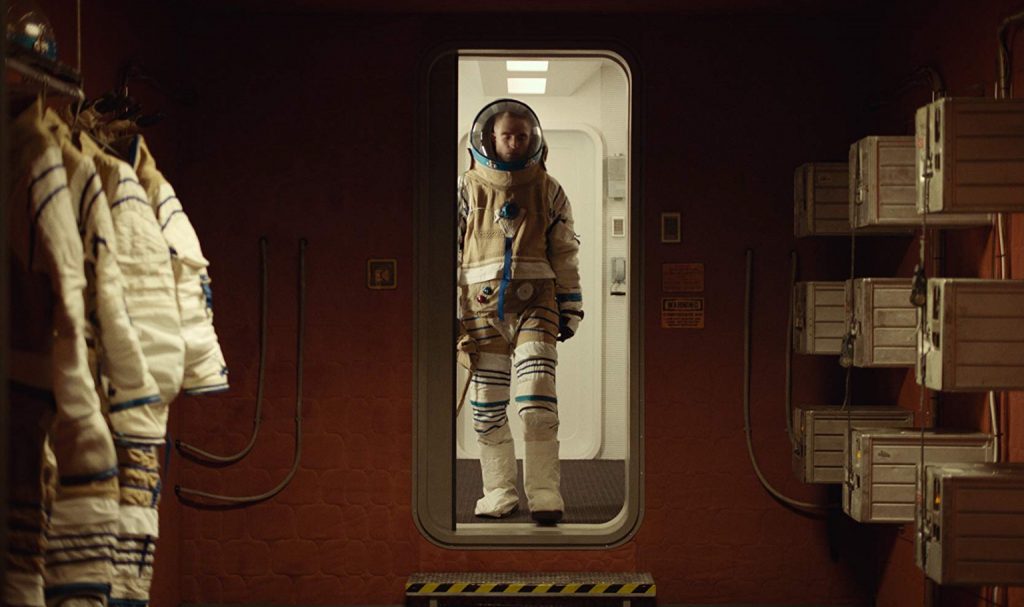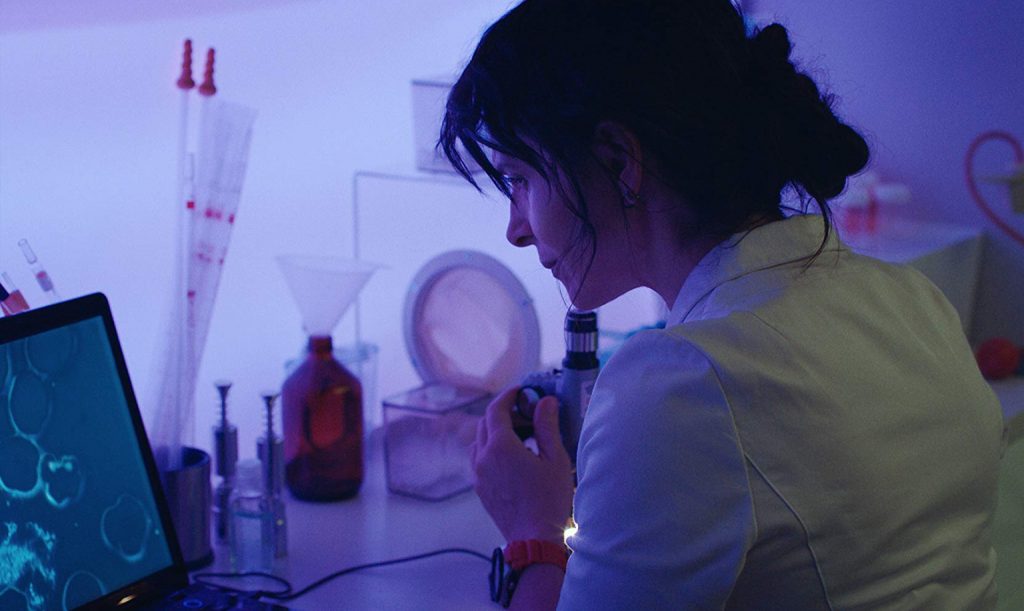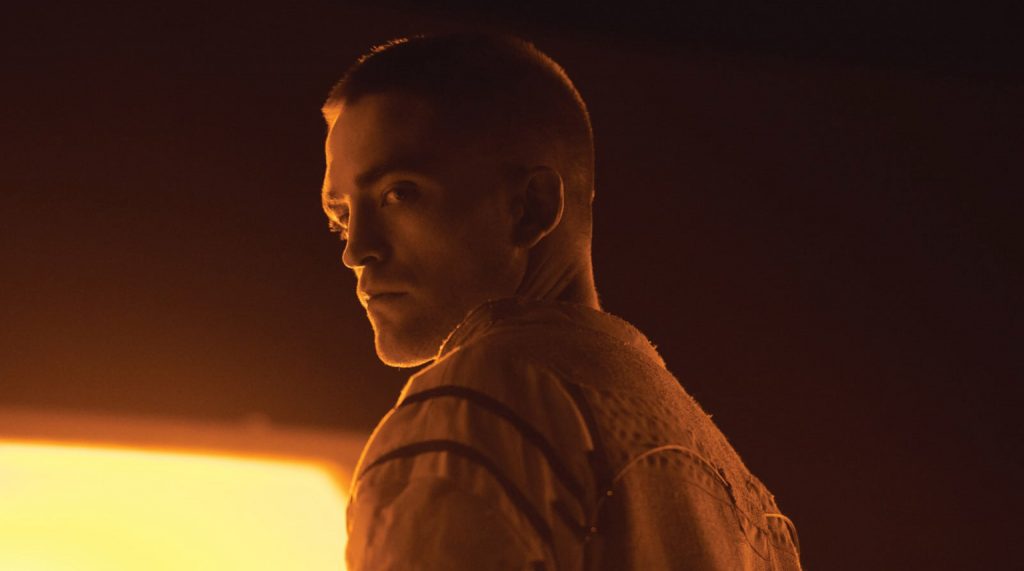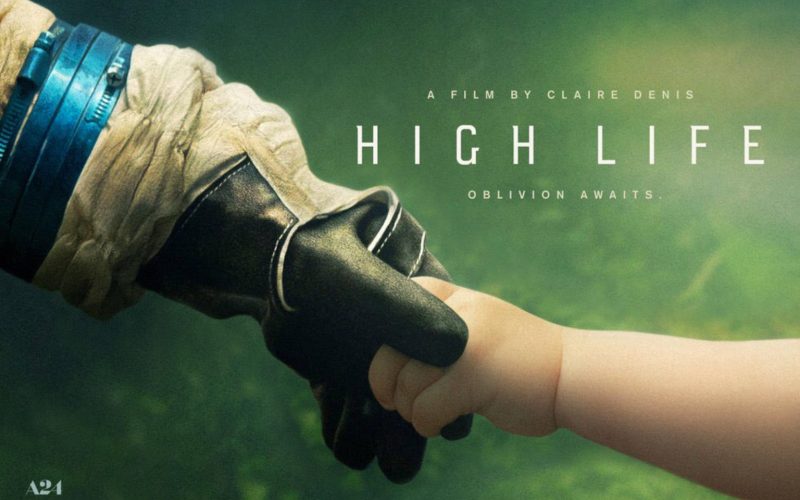High Life (2018).
A man maintains his ship during its aimless drift through outer space as its sole occupant – apart from the crying baby he’s also trying to raise. He drops his tool as he’s working on the outside of the ship, a result of the deafening cries of the child engulfing his senses inside of his helmet. Soon after, he launches the bodies of his deceased former crew members out through the hatch and into the dark abyss. As they float across the screen, so too does the title.

But Claire Denis, in her first English language feature, is not so liberal with her intentions in the opening act of High Life, though an overt indication toward them can be found in the premise alone. Monte, played with a quiet, subdued intensity by Robert Pattinson, is part of a team attempting to enter a black hole to extract energy for use on Earth. In other words, they’re trying to penetrate something that has, to this point, been impenetrable. Humanity’s lust for power, control and knowledge extends to our natural thirst for procreation, and in this basic premise we see the script’s true goal. It has little to do with the depths of space and the discoveries that await us; there’s no idealistic romanticism to be found in the confines of this, a film that just so happens to be set in space.
/cdn.vox-cdn.com/uploads/chorus_image/image/63654934/high_life_High_Life_Claire_Denis_8_rgb.0.jpg)
That Monte denies himself the pleasures of physical intimacy sets him apart from his comrades, the men of whom supply the seductive scientist on board with semen so that she can attempt to achieve artificial insemination. Acting as her guinea pigs, all of the crew members are religiously sedated, and they are prohibited from having sex with one another. Monte is the only celibate member of the crew, which proves a significant draw for Dibs (Juliette Binoche), whose frustration grows as she continually fails in her experiments. Much in the same way that Dibs finds herself drawn to a man almost solely because of his resistance to her, humanity is drawn to space and all the secrets it holds because it is, or has been, unreachable.

Impulse runs rampant within the walls of the ship, leading to unpleasant moments of brutal violence all in the name of Denis’ intense narrative. Insular by design, the film teeters on claustrophobic. It segments itself into moments in places and in time. Occasionally, it departs the ship for oddly unfamiliar sequences taking place on Earth. When we look out into space, or upon the beauty of a black hole, it’s always from a character’s point of view. As it journeys years at a time, the script offers valuable snapshots of the crew’s ongoing lives; we see what we need to see, and nothing more. Denis rewards viewers with short inserts, small details, dialogue-free until absolutely necessary. From one moment to the next, a baby may now be a girl entering adolescence. A man in one scene is a child in the next, whose actions would directly lead him on the path that sees him on this ship with these people and with this impossible task. Paying attention brings all of the pieces together, like a puzzle. Unlike a puzzle, failing to complete it does not devalue the experience.

The ambiguity with which the script treats the state of humanity creates a dream-like quality that frames the events unfolding. We’re quite sure we recognise the things we’re seeing – we’re no strangers to films that look and sound like this – but the abstract way in which Denis spurts out moments seems to define the way in which the film is trying (and succeeding) to explore the animalistic, undefinable sexual drive inherent in all humans. But there’s poetry to the roles of its key figures, too. The only man who has denied himself sexual pleasure is the one left to raise a child. His body is most immune to the radiation that the crew is exposed to. The mother of the child never expected to mother a child at all – comparatively to those around her, she’s still a child herself.

Its preoccupation with sexual desire and human biology are but parts of the portrait, and the film paints its canvas with a rather harrowing, unsettling exploration of human nature as a whole. There is no idealised scope with which Denis forces her characters to gaze out at the stars. The universe is as scary and alien as the humans who look out into it, and the film doesn’t shy away from the violence and the horror that people are capable of. Stuart A. Staples crafts a pulsating soundtrack that simmers beneath the surface much like the script’s more sinister characters. One particular sequence, taking place in a solitary dark room as Dibs contorts her body as though possessed, like something inhuman, unnatural, will stay with me for a long time yet. Staples plays a large role in that meticulously unnerving, disquieting experience.

High Life is a hypnotic, all-consuming beast, a tale about a group of people who do not belong together, nor do they belong in space, in a script that tries to make sense of humanity when its members are sucked into a vacuum. It may prove to be this year’s most engrossing, provocative science fiction film. Its slow first and third acts result in a searingly resonant midsection, and as a whole the film gives birth to something imaginative, seductive, and, least of all, unforgettable.
Film ’89 Verdict – 9/10
Though the film made its debut during the festival circuit of 2018, High Life reached the U.S. in April of this year and the U.K. in May. It has now arrived in select theaters in Australia as of June 6th.

